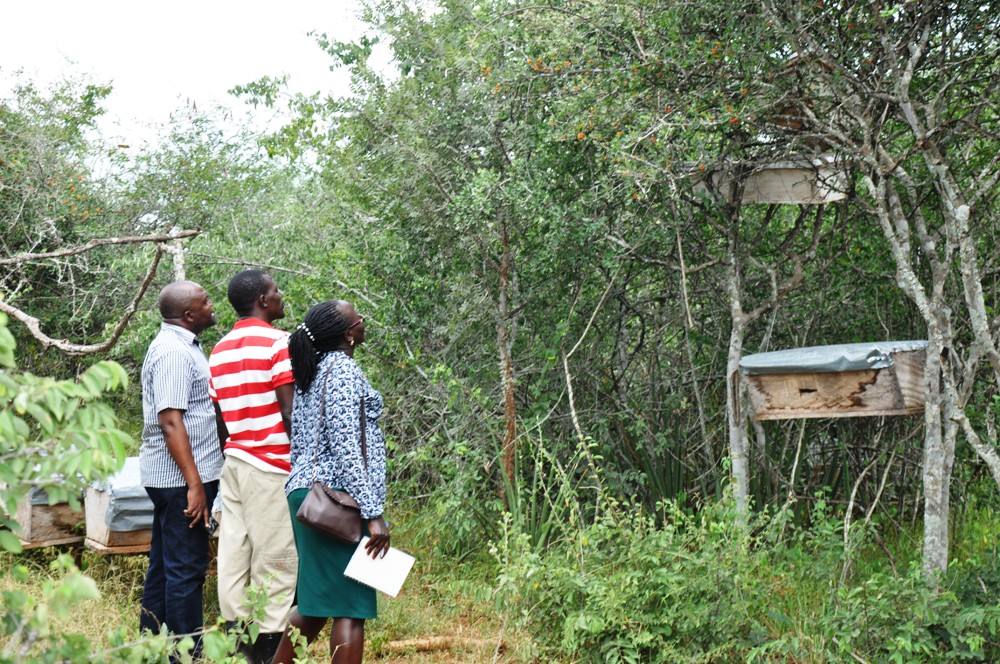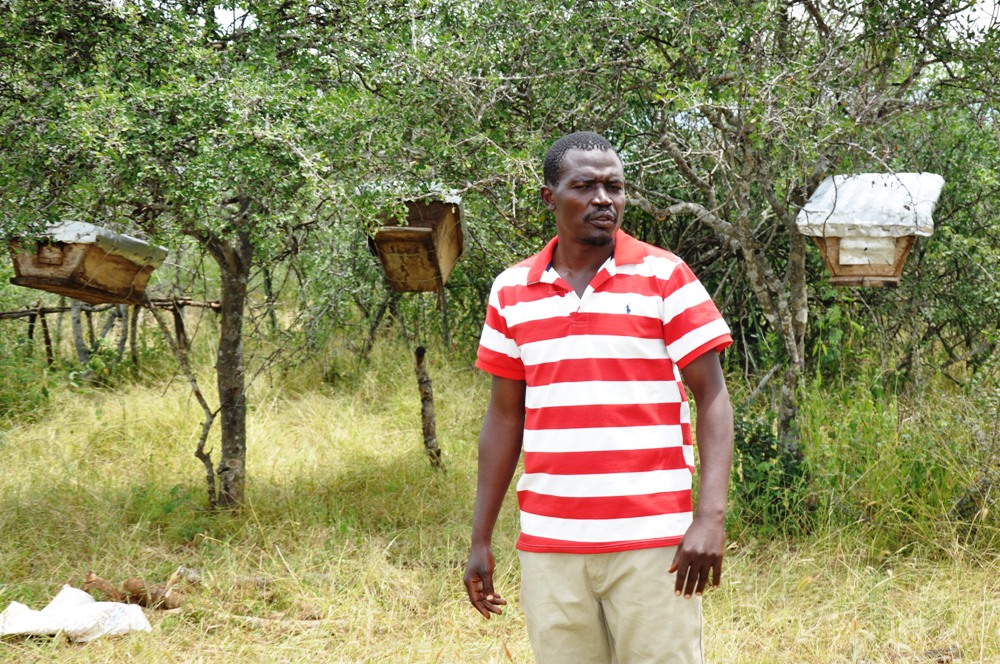
AMUDAT – An idea that started out as a jock has turned out to be a gold mine for 40 cattle keepers in the Pokot community in Amudat district that has seen them reaping fortune and spreading the sweetness of honey far and wide.
The juicy idea that was hatched by one called Hassan Maruti, a resident of senior quarters Kaalas ward in Amudat town council in Amudat Sub County in January 2019 has seen quite a number of the Pokot pastoralists ditch their old ways and venture into beekeeping and they are not regretting.
Currently, Mr. Maruti told PML Daily on Thursday, September 19 that he has over 200 beehives of which 130 beehives are colonized and ready to be harvested by the end of September this year.
He said each hive rakes in 15kilogrames of honey of which unprocessed honey one kilogram is bought at Shs10,000 per kilogram but when it’s processed a kilogram is sold at shs 20,000
Mr. Maruti who formerly used to grow maize and other crops has recruited more other people who have joined bee keeping project in Amudat district.
“I started this project just with 10 beehives but now I have 200 beehives which 130 are colonized ready to be harvested and am expecting to get shs 15million untaxed, the Jolly Maruti said.
He said the current harvest will be his second time adding that the first harvest he got shs 4million because he had few hives and used that money for buying more hives and acres of land for rearing the bees.
According to Maruti he copied the project from his friend from Barigo in Kenya who has over 800 beehives all colonized.
Mr. Maruti terms beekeeping as an untapped sleeping venture that many youths can venture in and profit tremendously.
“The demand for honey is gradually increasing as it is exported abroad this can be an opportunity for the youth who are crying of lack of jobs,” he said. He added that honey is harvested eight consecutive months in a year.
He has so far trained more farmers on how to keep bees in an economical way that would help them profit as much as they could from their hives.
He also trains them to manufacture locally made beehives to avoid overspending in buying the beehives from other regions.
Joyce Cherotic another farmer who has ventured in beekeeping said she does not regret at all since beekeeping project does not require weeding and spraying like crops.
“The venture has been lucrative enough for me it doesn’t have much work like weeding in gardens, in fact, it’s much better than poultry because poultry requires treating birds, feeding them yet honey it looks for its owned food and you only provide water source for them and prevent bush burning,” She said.
Change in lifestyle and the rise in lifestyle diseases has led to the demand of honey as many people are preferring honey to sugar.
Honey has many others by the product that can be made out of it these include propolis, wax and royal jelly, medicine, soap and others.
Honey is also known to have medicinal value and also helps to improve cholesterol levels in the body.
“There are various modern methods that are used to extract honey and some traditional methods are involved too but as for me, I opt to use the modern method as they are fast, save a considerable amount of honey and they don`t consume a lot of time,” Joicy chlorotic explains.

Honey extraction is the central process in beekeeping and involves removing honey from the honeycombs. This stage is important because it determines the quality and quantity of the honey harvested.
The major challenge that Mr. Maruit and his other groups’ faces include theft of beehives and wild animal that eats bees.
Mr. Maruit is now appealing to the government to set up a processing plant so that we don’t lose not only the honey but wax and other products.
Ms. Gloria Apio the Principal entomologist in Amudat district said most families have hoped for beekeeping in Amudat due to unreliable rainfall for crop production in the district
She also acknowledges the government needs to set up a processing plant in Amudat so that farmers can process and park the honey.
“What is happening is that our farmers just sell the honey after harvesting to Kenya and we lose other by-products that can be got from honey such as shoe police, wax, candles, and jelly, she said.
According to Ms Apio Amudat district, last season produced up to 8,000 kilograms of honey which was sold to Baringo in Kenya and parked as Baringo not even as Amudat district in Uganda.
She said with the processing plant if it’s put in place, Amudat can produce up to 30,000 kilograms of honey in every season.
Mr. Masokonyi Waswa the chief Administrative officer Amudat said he has directed that much of funding under production should be allocated on been keeping.
“Our honey was taken to Europe and it was tested as the best honey in the world,” he said.





